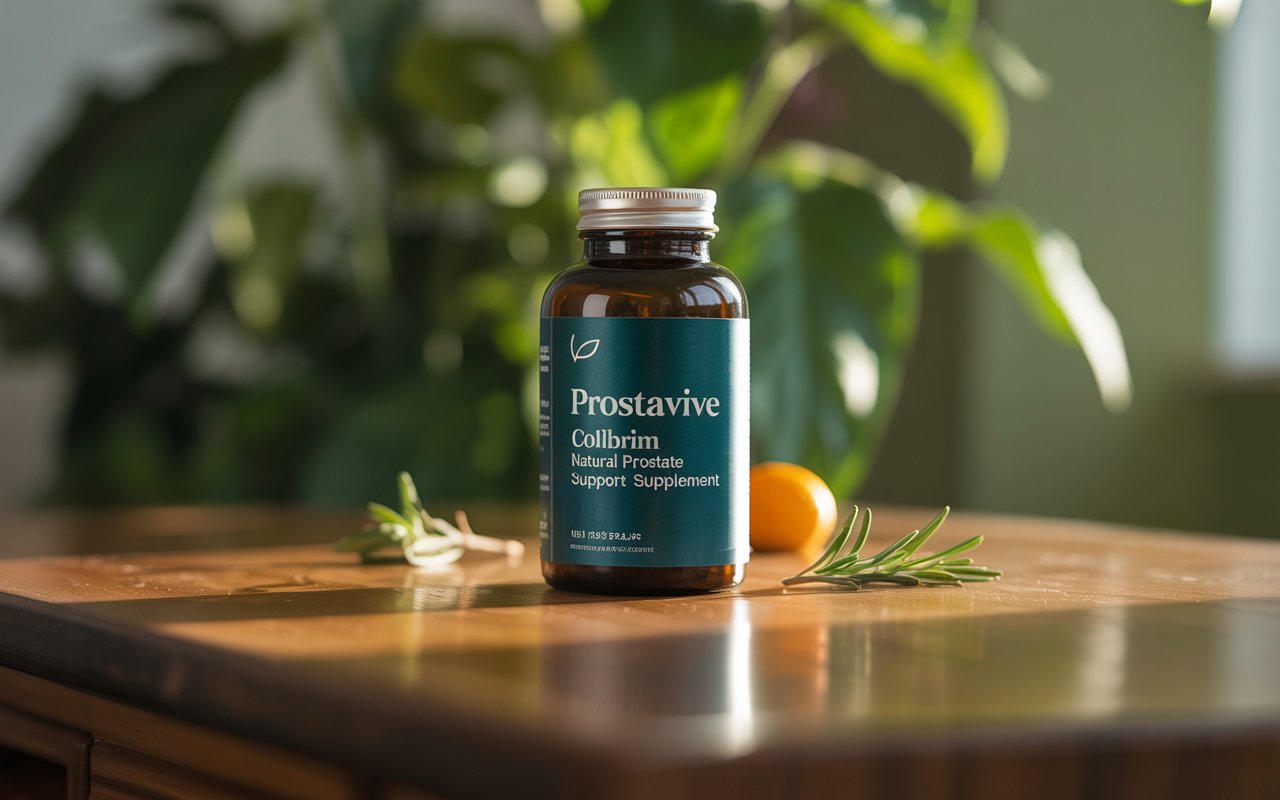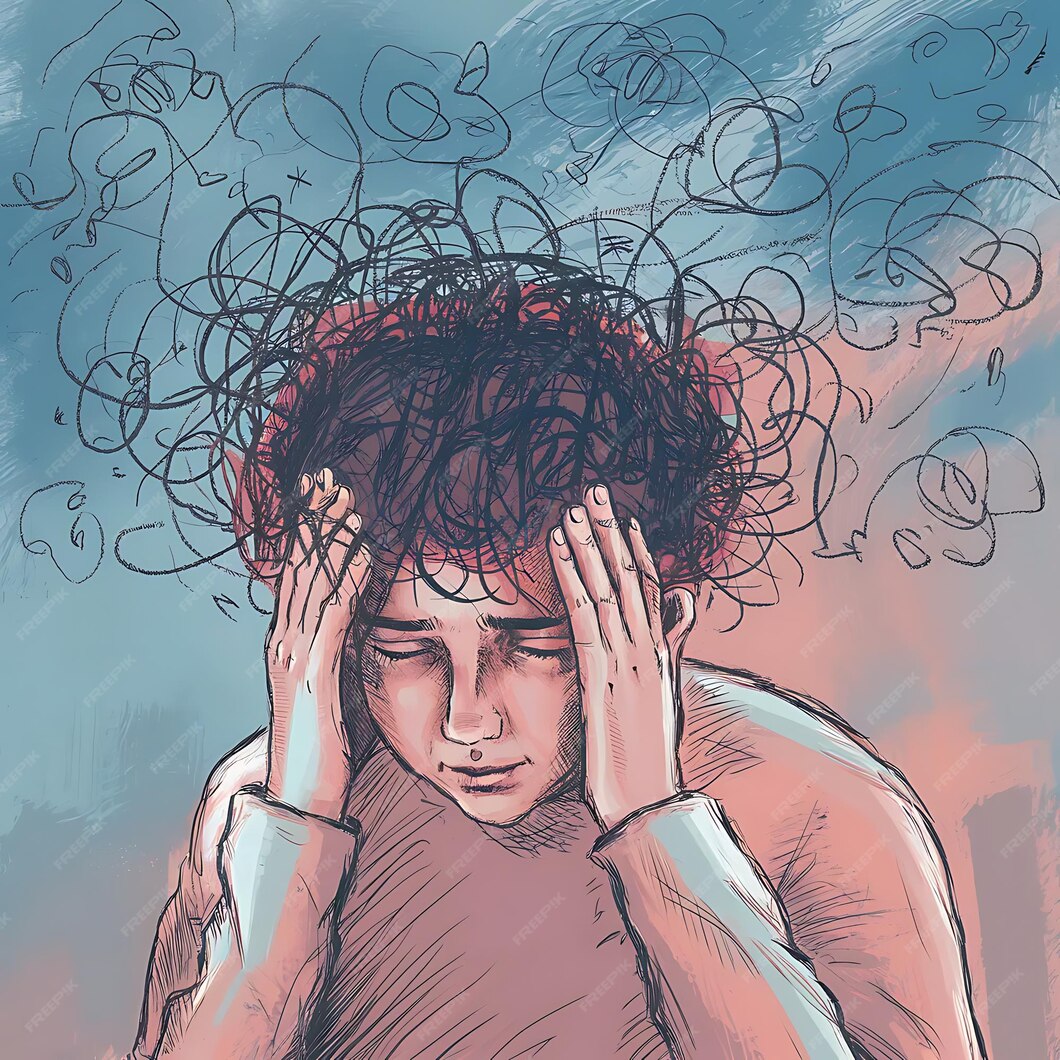Health
5 Tips & Tricks for Understanding Opioid Detox

Understanding opioid detox can be complex and overwhelming, whether you’re personally navigating through it or supporting someone who is. Millions of people worldwide suffer from opioid addiction, and withdrawal from these drugs needs medical supervision and assistance. Fortunately, some methods and insights can help to simplify this challenging procedure. This guide will explore five essential tips and tricks to help you comprehend and navigate opioid detox effectively.
Recognizing the Signs and Symptoms
Opioid detoxification can be physically and psychologically exhausting, and it often presents with a variety of symptoms. It’s critical to comprehend these symptoms in order to recognize whether someone is experiencing withdrawal. Sweating, muscular pains, vomiting, diarrhea, and nausea are typical physical symptoms. In addition, people may go through emotional and mental symptoms such as depression, agitation, anxiety, and insomnia. The severity of these symptoms might vary based on the drug consumed, how long it was used, and the general health of the user.
In order to provide the proper support and assistance throughout the detox process, it is important to recognize these indicators. It is imperative that you or someone you know get expert medical attention right away if they are suffering symptoms of opioid withdrawal. Medical practitioners are able to provide individualized treatment and assistance for the safe and efficient management of symptoms. They may also provide information and alternatives for therapy to assist people in overcoming the difficulties associated with detoxification and starting the process of healing.
Understanding the Importance of Medical Support
Opioid detox can be dangerous, especially when attempted without medical supervision. Medical assistance is crucial during the detox process because of the extreme withdrawal symptoms associated with opioids, which include strong cravings and possible problems, including electrolyte imbalances and dehydration. Medical practitioners can keep an eye on vital signs, give patients medicine to relieve symptoms and provide them emotional support as they go through detox.
One valuable tool in opioid detox is Sparrow RX, their devices are designed to provide non-invasive relief from withdrawal symptoms. This cutting-edge medical gadget helps reduce cravings and ease pain by targeting certain brain regions linked to opiate withdrawal using neurostimulation technology. By incorporating medical interventions like the Sparrow RX device into the detox process, individuals can experience more comfortable and manageable withdrawal symptoms, increasing their chances of completing detox and entering into recovery.
Developing a Supportive Network
Recovery from opioid addiction is not a journey that anyone should undertake alone. Creating a solid network of support before, during, and after detox is crucial for success. Your recovery process can be significantly impacted by surrounding yourself with understanding and caring people who can provide accountability, practical support, and encouragement.
Your network of support could consist of mentors with prior experience in addiction recovery, friends, family, medical experts, and members of support groups. These people can help you deal with obstacles that come up during and after detox and provide emotional support and direction. Joining support groups or therapy sessions can also help you meet others who are similar to you and who can relate to your experiences, which may reduce feelings of loneliness and provide insightful advice and encouragement.
Implementing Healthy Coping Strategies
During opioid detox, it’s common for individuals to experience intense cravings and emotional distress. Managing these difficulties and avoiding relapse requires the development of constructive coping mechanisms. During detoxification, practicing relaxation techniques like yoga, meditation, or deep breathing exercises may help lower tension and anxiety.
Another helpful strategy for dealing with emotions and desires is to discover healthy ways to express yourself, such as through writing, painting, or music. To enhance general well-being throughout detox, it’s also critical to give self-care activities like eating wholesome meals, exercising often, and getting enough sleep priority.
Creating a Long-Term Recovery Plan
Detoxing from opioids is just the first step on the journey to recovery. A thorough long-term recovery strategy is essential to preserving sobriety and preventing relapse. This strategy needs to include techniques for handling stress, controlling cravings, and treating underlying problems that lead to addiction.
As you manage the challenges of rehabilitation, including continuing assistance from medical experts, support groups, and therapy can provide helpful tools and accountability. Finding meaning and purpose in life, as well as looking for possibilities for personal development, can also help people stay motivated and dedicated to their sobriety objectives. Benefits of Dental Implants
Conclusion
Understanding opioid detox is a crucial aspect of overcoming addiction and reclaiming control of your life. Through awareness of the symptoms and indicators of withdrawal, getting help from a doctor, establishing a support system, using healthy coping mechanisms, and developing a long-term recovery strategy, you can better manage the challenges associated with detoxification and raise your chances of achieving a full recovery. Remember, you don’t have to face this journey alone—reach out for help and support, and take each step forward with courage and determination.
Health
Prostavive Colibrim Natural Prostate Support Supplement

Millions of men silently endure prostate-related discomfort as they age. With rising awareness around male wellness, Prostavive Colibrim has entered the scene as a revolutionary solution. Formulated to support prostate health naturally, this supplement has made waves across wellness communities. In today’s review-driven world, it’s more important than ever to evaluate not just what a product claims to do, but what it actually delivers.
What Makes prostavive colibrim Unique?
Unlike generic prostate pills on the shelf, Prostavive Colibrim stands out due to its tailored blend of herbal extracts and modern formulation technology. Carefully curated ingredients work synergistically rather than in isolation. While many supplements offer general benefits, Colibrim supplement targets the root causes of prostate discomfort and hormonal imbalances with precision.
How prostavive colibrim Supports Prostate Health
At its core, this supplement aims to reduce inflammation, regulate hormone levels, and promote a healthy urinary flow. Active plant compounds, including beta-sitosterol and saw palmetto, directly influence prostate size and comfort. Over time, users often report fewer nighttime trips to the bathroom, reduced urgency, and overall comfort in daily life.
Key Ingredients in prostavive colibrim
Here’s what drives the product’s potency:
-
Saw Palmetto Extract: Supports urinary tract and prostate health.
-
Beta-Sitosterol: Balances cholesterol and improves urinary symptoms.
-
Pygeum Bark: Known for anti-inflammatory effects on the prostate.
-
Pumpkin Seed Oil: Rich in zinc, supporting testosterone and prostate function.
-
Stinging Nettle Root: Balances hormones and aids in reducing inflammation.
Benefits of prostavive colibrim
The advantages span several aspects of male health:
-
Fewer disruptions from urination at night
-
Enhanced urinary stream and control
-
Increased energy and stamina
-
Greater sense of well-being
-
Improved libido and sexual function
How to Use prostavive colibrim Effectively
For optimal results, consistency is key. It is typically recommended to take two capsules daily with meals. Drinking plenty of water and pairing it with a healthy diet can amplify results. Users often notice improvements within a few weeks, but sustained usage yields long-term benefits.
Potential Side Effects of prostavive colibrim
Though largely well-tolerated, some users may experience mild symptoms like:
-
Nausea
-
Headache
-
Digestive discomfort
These side effects usually subside as the body adjusts. It’s advisable to consult a healthcare provider before starting any supplement, especially if other medications are in use.
Comparing Prostasol with Other Prostate Supplements
While several products on the market aim to support prostate health, Colibrim supplement is unique due to its potent, clinically-backed ingredients. In head-to-head comparisons, it often surpasses competitors in terms of user satisfaction, transparency, and formulation purity.
Clinical Evidence Behind prostavive colibrim
Ingredients like beta-sitosterol and saw palmetto have been widely studied in peer-reviewed journals. Numerous trials have shown measurable reductions in BPH (benign prostatic hyperplasia) symptoms. The formulation adheres to dosages proven effective in scientific literature, reinforcing its credibility.
User Reviews and Testimonials
Men in their 50s and beyond have praised the product for transforming their daily lives. Testimonials often mention restored confidence, better sleep due to fewer bathroom trips, and renewed intimacy with partners. Although results vary, the consistency in positive feedback adds a layer of trustworthiness.
Who Should Use prostavive colibrim?
This supplement is ideal for men:
-
Over the age of 40
-
Experiencing urinary discomfort
-
With family history of prostate issues
-
Seeking a natural approach to health
Is Prostavive Colibrim Safe for Long-Term Use?
Given its natural composition, long-term use has been deemed safe by users and experts alike. Still, regular health check-ups are encouraged to monitor overall well-being. No toxic effects or accumulative risks have been associated with its daily use.
Where to Buy prostavive colibrim
It is available online through official vendor websites and sometimes through trusted online marketplaces. Always ensure the product is sourced from reputable suppliers to avoid counterfeit risks.
Cost and Value Proposition of prostavive colibrim
While not the cheapest on the shelf, Colibrim supplement offers tremendous value. Its multi-functional benefits, quality assurance, and effective dosages justify the price point. Subscription models often bring additional savings.
prostavive colibrim and Men’s Overall Health
This product extends its impact beyond just the prostate. Users have reported increased vitality, sharper mental clarity, and better metabolic function. It integrates seamlessly into a broader wellness regimen.
How Quickly Does prostavive colibrim Work?
Initial results may be felt within two to four weeks. However, the full spectrum of benefits often unfolds after 60-90 days of continuous use. This gradual effectiveness aligns with the natural processes it supports.
prostavive colibrim for Aging Men
Older men stand to gain the most. As testosterone levels decline and prostate issues arise, this supplement offers both relief and rejuvenation. It’s designed with the aging male body in mind.
The Role of Diet When Using Prostavit Colibrim
Eating a diet rich in vegetables, healthy fats, and fiber can further reduce inflammation and boost nutrient absorption. Avoiding processed foods and alcohol helps reinforce the product’s effects.
Exercise and prostavive colibrim
Physical activity, especially resistance training, synergises beautifully with this supplement. Better circulation, hormonal balance, and fat metabolism enhance its results.
Understanding Prostate Enlargement and How Prostavive Colibrim Helps
BPH is a common yet manageable condition. By addressing inflammation and hormonal imbalance, Colibrim supplement minimizes swelling and restores functionality.
Does prostavive colibrim Affect Testosterone?
Rather than artificially altering levels, it supports natural testosterone production. Ingredients like zinc and nettle root help maintain hormonal equilibrium, which in turn benefits energy and libido.
Myths and Facts About prostavive colibrim
Some believe all supplements are the same or that natural products are ineffective. However, prostavive colibrim defies these myths through rigorous formulation and user satisfaction.
Natural vs Synthetic Prostate Supplements
Synthetic options may offer quick fixes but come with side effects. Colibrim supplement opts for a holistic, sustainable path that prioritizes long-term wellness.
Storage and Shelf Life of prostavive colibrim
Store it in a cool, dry place away from sunlight. Most batches remain potent for up to 24 months from the manufacturing date. Always check the label for expiry details.
How prostavive colibrim Enhances Quality of Life
By improving sleep, reducing discomfort, and restoring hormonal health, this supplement plays a pivotal role in elevating day-to-day well-being. Whether it’s greater energy or less anxiety around urinary issues, the difference is often felt beyond just physical improvements.
Conclusion
Navigating prostate health doesn’t have to be a silent battle. Prostavive Colibrim offers a practical, well-rounded, and natural solution for men seeking lasting relief and vitality. With its clean ingredient list, solid user reviews, and science-backed formula, it proves that taking care of your health can be both simple and effective.
Health
Wholeness and Well-being: Fostering Inclusive Mental Health Support for LGBT+ Individuals

Introduction to Inclusive Mental Health Support
Inclusive mental health support recognizes the diverse needs of individuals and aims to create safe, affirming spaces for everyone. It involves addressing unique challenges faced by marginalized groups, such as stigma, discrimination, and lack of access to culturally competent care. Inclusive mental health services encourage understanding and respect, allowing people to seek care without fear of judgment. This approach promotes equity and makes mental health care accessible and responsive to all.
For LGBTQ+ individuals, inclusive support is particularly vital in addressing issues like identity exploration, discrimination, or relationship challenges. Services like LGBTQ therapy and counseling provide a safe environment where individuals can openly discuss their experiences and receive tailored support. Such affirming care helps build resilience and promotes overall well-being, ensuring that mental health resources meet the needs of diverse communities in meaningful ways.
Understanding Unique Challenges Faced by LGBT+ Individuals
LGBT+ individuals often encounter a distinctive set of mental health challenges that standard care models do not fully address. These challenges frequently stem from external societal pressures, such as discrimination, stigmatization, and, in some cases, outright violence. These obstacles can lead to psychological distress, such as depression, anxiety, and heightened stress levels. For example, discrimination in workspaces or public services can create pervasive feelings of insecurity and marginalization, impacting mental health profoundly.
Internal struggles related to identity acceptance further compound these external pressures. The process of coming out, dealing with family rejection, or navigating the complexities of gender identity can lead to internalized homophobia or transphobia, which exacerbates mental health conditions. Addressing these issues necessitates a thorough awareness of socio-cultural aspects. Therefore, mental health providers should adjust their techniques to accommodate such intricacies.
Importance of Inclusive Language in Therapy
The role of language in therapy extends beyond mere communication—it’s about building trust and affirming the client’s identity. Inclusive language plays a pivotal role in making clients feel seen and respected. This means using clients’ chosen names and pronouns and avoiding assumptions based on stereotypes. For many LGBT+ individuals, encountering non-inclusive language can be retraumatizing and may prevent them from seeking the help they need.
By committing to inclusive language, therapists acknowledge the fluidity and diversity of human identity, thus paving the way for more profound therapeutic engagement. This acceptance is vital as it encourages clients to be open about their experiences without fear of judgment or misunderstanding, ultimately fostering a more potent therapeutic alliance and effective mental health outcomes.
Creating Safe Spaces for Open Dialogue
Safe spaces extend beyond physical settings; they encompass an environment where emotional safety is prioritized and open, honest dialogue is encouraged. For LGBT+ individuals, having access to environments that foster such dialogues is essential for effective mental health care. In these spaces, clients feel confident expressing themselves without fearing prejudice or backlash.
Safe spaces contribute positively to mental health outcomes as they counteract the negative impacts of external stigma and discrimination. Therapists can create such environments by demonstrating empathy, active listening, and open-mindedness. This approach reassures clients that their concerns are valid and will be met with compassion and understanding.
Tailored Therapeutic Approaches for LGBT+ Clients
Therapeutic practices tailored for LGBT+ clients often involve integrating cultural sensitivity into traditional therapy models. Effective therapy for the LGBT+ community doesn’t just involve basic counseling techniques but emphasizes sensitivity to the specific narratives and challenges these individuals face. Cultural competence in treatment consists of recognizing and understanding the impact of cultural identities and societal pressures on an individual’s mental health.
Approaches such as affirmative therapy, which explicitly acknowledges and supports a client’s identity, and cognitive-behavioral therapy (CBT), which helps clients manage negative thoughts and behaviors, are commonly adapted. These frameworks empower clients, offering them tools to navigate their unique life circumstances more effectively, thereby gradually enhancing their quality of life.
Role of Community and Support Networks
LGBT+ people rely heavily on community and support networks in their mental health care. These networks give much-needed emotional support, lessen feelings of loneliness, and offer practical advice on dealing with daily life issues. Having a group of peers with similar experiences may be highly reassuring and augment official treatment by giving extra support.
Such networks can take many forms, including in-person support groups, internet forums, and social events for the LGBT+ community. These meetings provide a safe area for people to connect over shared experiences, exchange coping skills, and build a feeling of belonging, all of which are important for psychological resilience.
Online Resources and Digital Support Tools
The digital age has ushered in an array of online resources designed specifically for the mental health needs of LGBT+ individuals. These tools offer flexible, immediate support often unavailable through traditional means. Digital platforms provide anonymity, accessibility, and a wealth of information, catering to those who may not have access to in-person therapy or prefer the comfort of engaging from their own space.
The online world is a vibrant and supportive space, from mental health apps offering coping mechanisms and mood trackers to community forums where individuals can share experiences and resources. These resources can complement traditional therapy by providing additional support and empowering individuals in their self-care practices.
Looking to the Future: Shifting Perspectives
The future of mental health support for LGBT+ individuals looks promising, with growing awareness and advocacy for more personalized and inclusive care. The trajectory toward more inclusive mental health practices involves integrating digital tools with traditional therapeutic methods, providing professionals with broader tools tailored to each individual’s needs. As societal perspectives continue to shift toward greater acceptance and understanding of diverse identities, mental health support systems must continue to evolve in tandem.
Future efforts will likely focus on expanding educational programs for clinicians, integrating cultural competency into mental health curriculums, and continuing advocacy efforts that push for systemic change. With these concerted efforts, the path toward wholeness and well-being for LGBT+ individuals stands to become even more robust and inclusive.
Health
Effective Strategies for Managing Generalized Anxiety: Tools & Techniques

Generalized Anxiety Disorder (GAD) affects millions of people across the globe, manifesting as an ongoing cycle of excessive worry that can seem all-consuming. It involves persistent and excessive worry about everyday situations like health, finances, work, or even minor matters. Despite the familiarity of these worries, those with GAD find them overwhelming, affecting their daily lives and well-being. Seeking support from a professional, such as an anxiety therapist, can be crucial in learning effective coping mechanisms.
The effects of GAD are profound, with symptoms like fatigue, restlessness, and muscle tension affecting both mental and physical well-being. Acknowledging and addressing these symptoms is crucial for enhancing overall health and quality of life.
Understanding Your Anxiety Triggers
Identifying specific factors that trigger your anxiety is key to managing it effectively. These triggers might include high-pressure work environments, intricate personal relationships, or financial uncertainties. By acknowledging these triggers, you can formulate targeted strategies to mitigate their influence. Working with an addiction therapist can also be beneficial, especially if substance use is intertwined with anxiety. They can help you uncover underlying patterns and provide personalized tools to address both anxiety and addiction, fostering a more balanced and healthier life.
Mindfulness as a Tool for Anxiety Management
Mindfulness practices are very effective in alleviating anxiety. Individuals can more effectively manage overwhelming thoughts and emotional responses by fostering awareness of the present moment. Practices like mindful meditation and deep breathing exercises are calming and enhance emotional regulation, promoting a sense of tranquility and grounding. These techniques help build resilience against stressors and improve health quality. Studies and articles on mindfulness are a testament to its impact and effectiveness in everyday life.
Cognitive-Behavioral Techniques for Anxiety
Cognitive-behavioral therapy (CBT) is widely regarded as one of the most effective methods for treating anxiety disorders. This method reshapes thought patterns to challenge and reduce irrational fears and concerns. Techniques like cognitive restructuring facilitate the challenging of negative thoughts that feed anxiety, while exposure therapy helps in reducing stress by gradually confronting feared situations.
CBT equips individuals with practical tools to think, act, and react differently to anxiety-inducing scenarios. Resources from the National Institute of Mental Health provide a wealth of information on CBT’s application and advantages in managing generalized anxiety disorder.
The Importance of Lifestyle Changes
Making lifestyle changes can significantly impact managing anxiety. A nutritious diet, regular sleep patterns, and caffeine reduction contribute to better mental health.
Establishing a daily routine offers structure and consistency, which helps alleviate anxiety by minimizing unnecessary uncertainty. Minor, consistent adjustments to daily habits, such as choosing balanced meals or dedicating time for relaxation, are accessible ways to alleviate anxiety and significantly enhance stress levels and overall well-being.
Building a Support System
A reliable support system is invaluable for those experiencing anxiety. Friends, family, or support groups offer a space of understanding and empathy where individuals can share experiences and coping strategies. Regular interactions with supportive individuals can alleviate loneliness, promoting a sense of belonging and solidarity.
In addition to personal connections, professional support groups provide a structured environment to explore feelings. These groups can offer practical advice on managing anxiety and foster a sense of community among members facing similar challenges.
Incorporating Physical Activity into Your Routine
Physical activity is known for its numerous benefits on mental health, particularly in anxiety management. Engaging in exercises such as jogging, yoga, or even brisk walking can reduce anxiety due to endorphin release. These “feel-good” chemicals improve mood and counteract stress hormones.
Regular physical activity contributes to physical health and enhances mental resilience. Integrating exercise into daily routines offers a structured way to release accumulated energy and emotions, which can significantly aid in managing anxiety more effectively.






